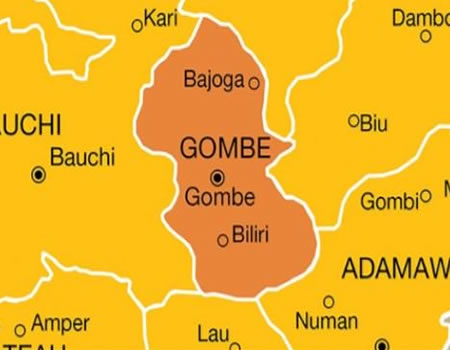…innovative hubs target food security, job creation, economic diversification – Shettima
The Nigerian government has called on international development partners to co-finance phase two of the Special Agro-Industrial Processing Zone known as the SAPZ-2 programme to accelerate the implementation of the initiative for agro-industrial growth in the country.
This came as Vice President Kashim Shettima described the project as a game changer for the nation’s economy, saying accelerated implementation plan for phase one and the on-boarding of the phase-two states would enable the administration of President Bola Tinubu to actualize its food security agenda.
The Nigeria Special Agro-Industrial Processing Zones (SAPZ) programme aimed to create new hubs that integrate the production, processing and distribution of targeted crops and livestock to achieve food security, increase incomes, improve livelihoods, and support economic diversification.
Speaking on Thursday during the SAPZ-2 programme co-financiers meeting held at Presidential Villa, Abuja, the Vice President said the SAPZ programme would be a win-win situation for both the Nigerian government and the development partners in meeting their development objectives and impacting livelihoods.
He said, “This meeting has become imperative to mobilize additional financing for the second phase of the programme to accommodate more States beyond the ten that has been earmarked.
“We currently have a commitment of US$600 million from AfDB through a multi-tranche financing arrangement of US$200 million/year and US$300 million from BADEA expected to be allocated on a US$100 million/year basis.”
On phase one of the initiative, Shettima noted that the first phase taught a lot of lessons which helped the government to reshape the programme towards an accelerated delivery,
Noting that the whole idea would actualize the administration’s food security agenda, he said, “With the African Development Bank (AfDB), the SAPZ programme is different from any other programme and has been set on autopilot with the Design, Build and Operate (DBO) model that is set to deliver infrastructure for the processing zones by the end of 2025.
“The accelerated implementation plan for phase one and the onboarding of the phase-two states will enable us to achieve Mr. President’s Food Security Agenda.
“The strategic focus is to set modalities for increased production and processing of Cassava, Rice, Maize, Cocoa, Tomatoes, and Livestock amongst other designated SAPZ priority crops in all the seven participating states and the FCT for this upcoming dry season”.
He described SAPZ as the agri-business model for Nigeria to diversify its economy through agriculture as well as a platform for development partners to deliver on their developmental objectives across the various SDGs.
Shettima noted that the Nigerian government has made it a Presidential priority programme and has “kick-started the legal arrangement to institutionalize it as an agency of government for sustainability”.
Applauding their commitments to co-finance the initiative together with the Nigerian government, the Vice President commended the AfDB, the International Fund for Agricultural Development (IFAD) and the Islamic Development Bank (IsDB) for their unwavering commitment to ensuring that the SAPZ programme delivered on its objective.
Earlier, National Programme Coordinator, SAPZ, Dr Kabir Yusuf, said the project was designed to bolster Nigeria’s agro-industrial development, boost food security, create jobs, and reduce poverty, in line with Tinubu’s Renewed Hope Agenda.
“The primary objective is to support sustainable and inclusive agro-industrial development through four components: infrastructure development in agro-industrial hubs, agricultural productivity, policy implementation, and program management.
“For every participating state, we first identify the crop with a competitive and comp
Please follow and like us:

 3 hours ago
2
3 hours ago
2












